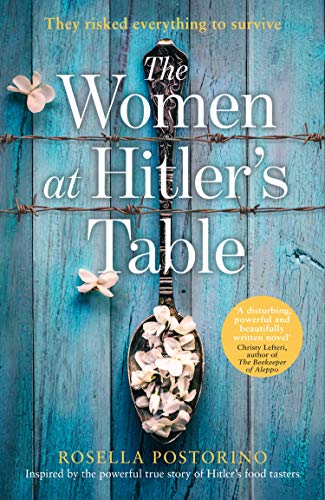This title is currently out of stock. Leave us your email address, we’d let you know when it’s in stock again!
-

A note on book covers: while we do our best to ensure the accuracy of cover images, ISBNs may at times be reused for different editions of the same title which may hence appear as a different cover.
The Women At Hitler'S Table
The Women At Hitler'S Table
Couldn't load pickup availability
La prima volta che entra nella stanza in cui consumerà i prossimi pasti, Rosa Sauer è affamata. «Da anni avevamo fame e paura,» dice. Con lei ci sono altre nove donne di Gross-Partsch, un villaggio vicino alla Tana del Lupo, il quartier generale di Hitler nascosto nella foresta. È l’autunno del ’43, Rosa è appena arrivata da Berlino per sfuggire ai bombardamenti ed è ospite dei suoceri mentre Gregor, suo marito, combatte sul fronte russo. Quando le SS ordinano: «Mangiate», davanti al piatto traboccante è la fame ad avere la meglio; subito dopo, però, prevale la paura: le assaggiatrici devono restare un’ora sotto osservazione, affinché le guardie si accertino che il cibo da servire al Führer non sia avvelenato.
Nell’ambiente chiuso della mensa forzata, fra le giovani donne s’intrecciano alleanze, amicizie e rivalità sotterranee. Per le altre Rosa è la straniera: le è difficile ottenere benevolenza, eppure si sorprende a cercarla. Specialmente con Elfriede, la ragazza che si mostra più ostile, la più carismatica. Poi, nella primavera del ’44, in caserma arriva il tenente Ziegler e instaura un clima di terrore. Mentre su tutti – come una sorta di divinità che non compare mai – incombe il Führer, fra Ziegler e Rosa si crea un legame inaudito.
Details of Book
Related Collections:
A note on book covers: while we do our best to ensure the accuracy of cover images, ISBNs may at times be reused for different editions of the same title which may hence appear as a different cover.

-
One Line Summary
Women's silent courage under Nazi shadow.
-
Who is this book for?
If you’re interested in stories that reveal overlooked human experiences during dark times, this book is a compelling read. It offers a nuanced look at the personal struggles of women who, despite being caught in history's brutal machinery, find moments of connection and resilience. Postorino's storytelling brings a rare intimacy to the silent stories of those who served at Hitler's table, making it a poignant choice for anyone fascinated by lesser-known wartime narratives.

